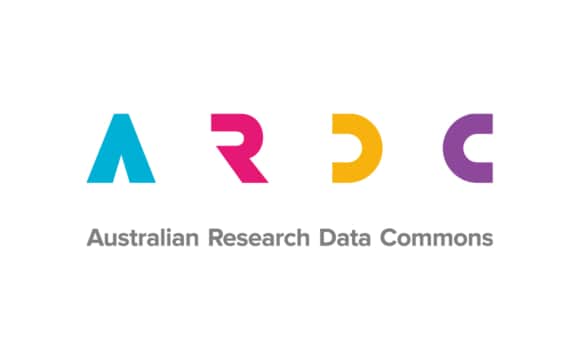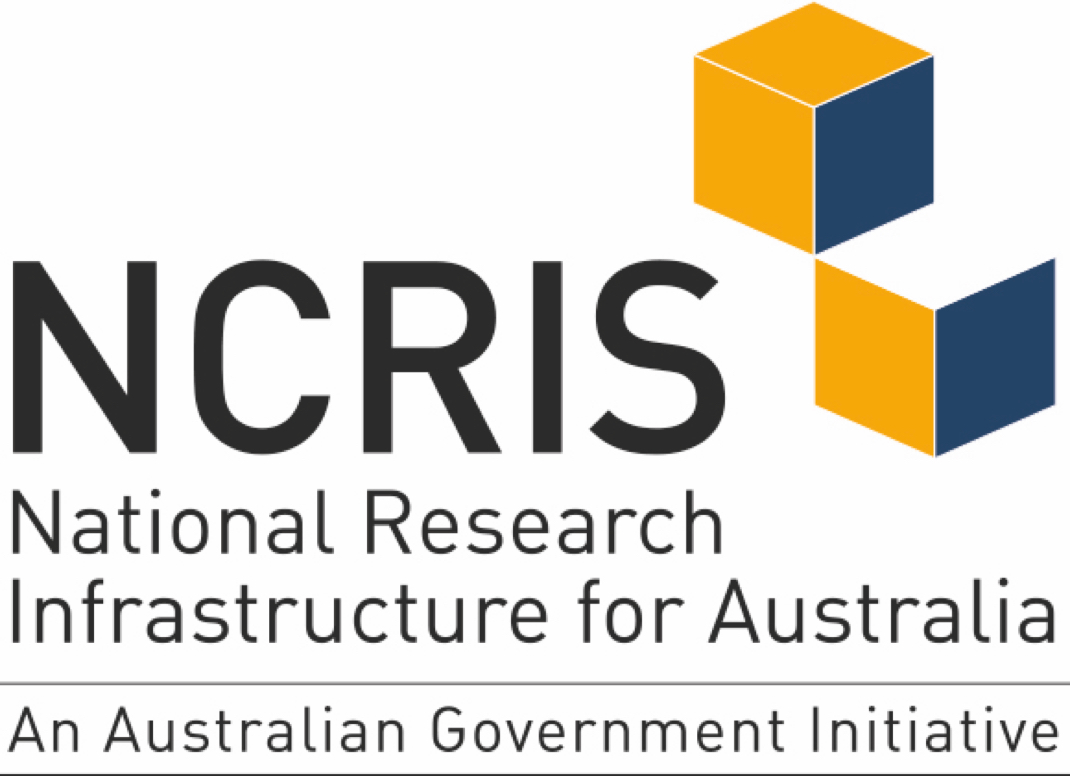About IRISS
Context
Australia’s social science research infrastructure needs to be better integrated and interoperable in order to keep up with cutting edge global research and research infrastructures currently operating in the US and Europe. Much of the existing Australian infrastructure is underdeveloped, too small, has limited integration with other research infrastructure and is not well coordinated.
Key existing social science data infrastructure have limited resources currently available to integrate or expand their significant existing data resources, and user base.
A significant proportion of the available data also needs to be kept confidential and has serious privacy considerations. These constraints have led to a relatively fragmented infrastructure landscape for Australian empirical social science researchers.
Researchers’ challenge
Finding data and metadata across platforms and determining its suitability for integration are time-consuming tasks requiring high expertise. For instance, it may require a conciliation across the different vocabularies, definitions, spatial boundaries, and other factors that vary over time and space.

Project
The Integrated Research Infrastructure for Social Sciences (IRISS) project is working towards providing a new foundation for integrating data, analysis, and platforms for social science research in Australia.
The starting point for this infrastructure is a core foundation of data – its acquisition, documentation, harmonisation and dissemination for re-use.
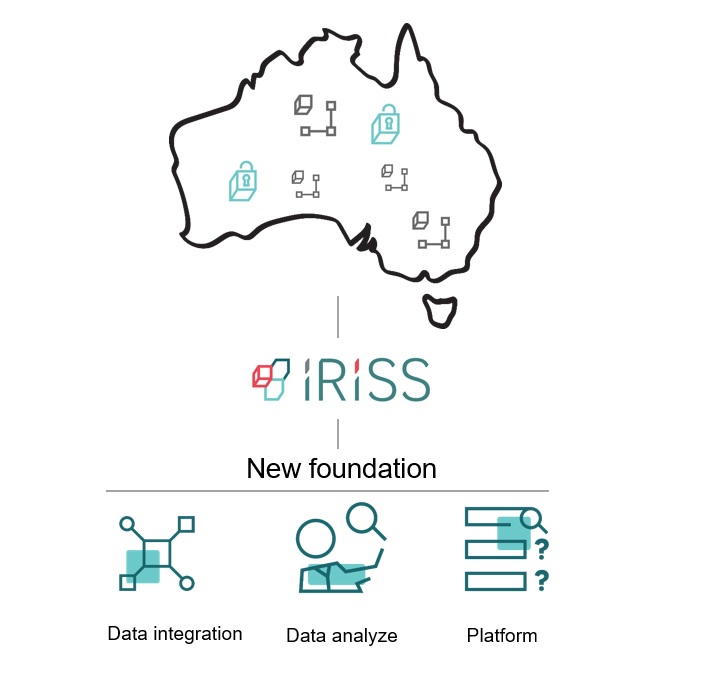
Project’s aim
- Establishing a coordinated governance and integration model for the provision of data and infrastructure in the social sciences and related disciplines in Australia
- Enhancing the research capacity of Australian social science researchers, through the development of tools and services to enable the creation, dissemination and use of quantitative and qualitative social science data sources
- Enabling a cost-effective and accessible data integration environment (for lower risk data)
IRISS Road Map
In 2021, the Department of Education initiated consultations and surveys to understand the needs of the National Research Infrastructure (NRI). This led to the 2021 National Research Infrastructure Roadmap, guiding investment in research infrastructure. Stakeholder responses highlighted the need for increased support for Humanities and Social Science Research (HASS) and concerns about data storage.
In November 2021, the HASS and Indigenous Research Data Commons | ARDC announced Successful Projects for the ARDC HASS Research Data Commons and Indigenous Research Capability Program, including Integrated Social Sciences Research Infrastructure (IRISS), aiming to enhance researchers’ access to Australia’s HASS and Indigenous data. The Australian social science research infrastructure has been a topic of discussion for over a decade, and initiatives like IRISS, seek to address gaps.
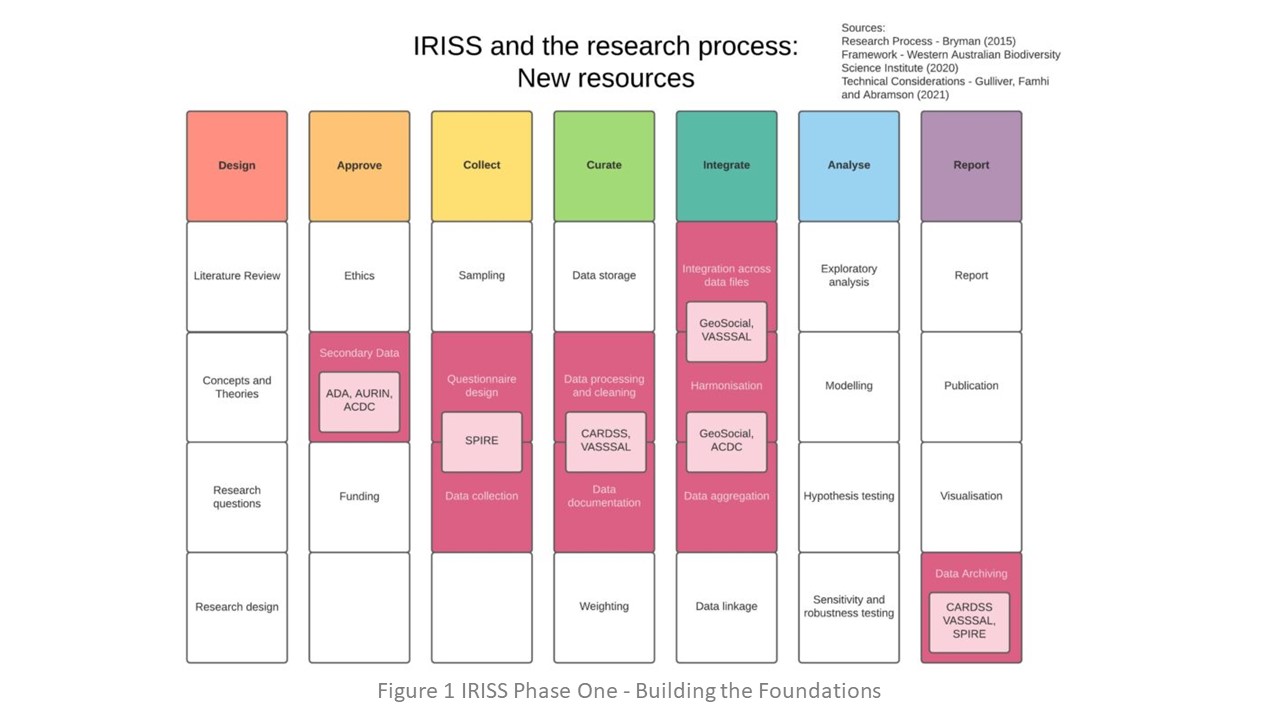
Australia Data Achieve has been nearly 40 years providing data repository services to the HASS research community and working closely with other institutions (UQ, MI, AURIN, and Data providers) who are also experiencing the same difficulty in accessing, analysing, or distributing data. The deep interaction in the research society’s daily activities of the national and international community inspired ADA, AURIN, and UQ to lead this project.
IRISS project was initially planned into two phases, and we are currently in the transition period from phase one to phase two. IRISS Phase One focused on understanding user needs and best practices, establishing foundations, and completing demonstration projects. Phase Two aims to leverage Phase One’s work, emphasizing sensitive data management, expanding data accessibility, and engaging the research and policy community. These efforts span the entire research lifecycle, contributing to impactful policy outcomes.
Our vision by 2028 is as a fully established as a national network of social science research infrastructure service providers (ANU, UQ, UMELB, SWIN, AURIN) and government partners (ABS, AIHW, AIFS, Department of Social Services and Dept of Education). IRISS will enable academic-government collaborations, using core academic and government data sources to answer key research and policy questions with impact at a national and global scale.
Benefit/Impact
Potential benefits include:
- Creating cross-sector opportunities e.g., between academia, government, industry and the community sector
- Better use of nationally significant research and government data assets
- Improved engagement with policy outcomes through research translation program
- Alignment with equivalent programs internationally, including European Open Science Cloud initiatives such as SSHOC and CESSDA, and national systems such as ODISSEI
Come with us on this journey.
Partners
IRISS | Integrated Research Infrastructure for Social Science (https://doi.org/10.47486/HIR002) is a collaborative project under the program HASS and Indigenous Research Data Commons and supported by ARDC | Australian Research Data Commons. It’s led by the Australian Data Archive (ADA), which is located at the ANU | Australia National University.
Our partners bring core resources to the project in one or more areas, including research capacity, data, tools and services, and training.
To know more about IRISS team organisations:
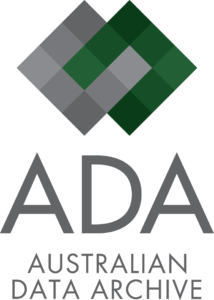
ADA | Australian Data Archive provides a national service for the collection and preservation of digital research data and disseminates this data for secondary analysis by academic researchers and other users. ADA operates within the ANU Centre for Social Research & Methods.
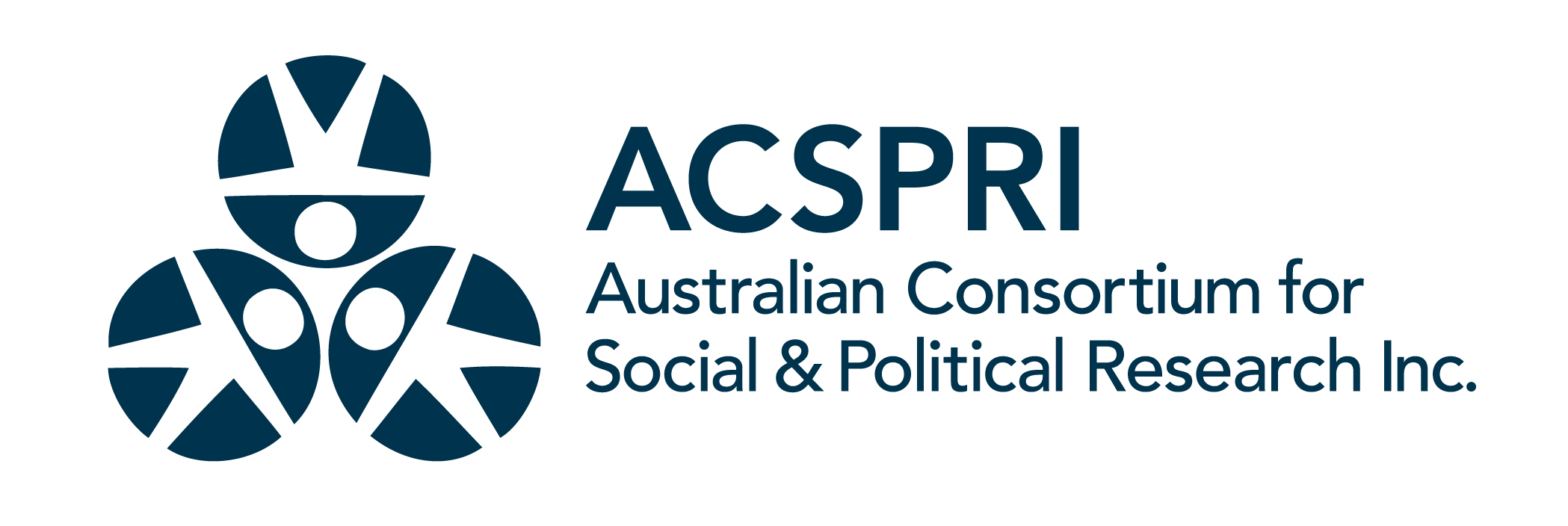
The Australian Consortium for Social and Political Research Incorporated (ACSPRI) is a not-for-profit organisation with the broad aim of promotion and enhancement of social science research and methods in Australia. ACSPRI specialises in survey and methodological research, data collection, and development of software and tools.
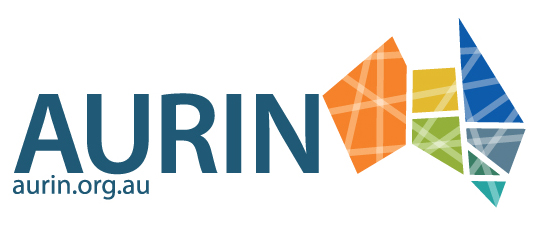
AURIN is a collaborative national network of leading researchers and data providers across the academic, government, and private sectors. AURIN provides access to data and tools for researchers and policy makers across Australia and is an NCRIS capability.
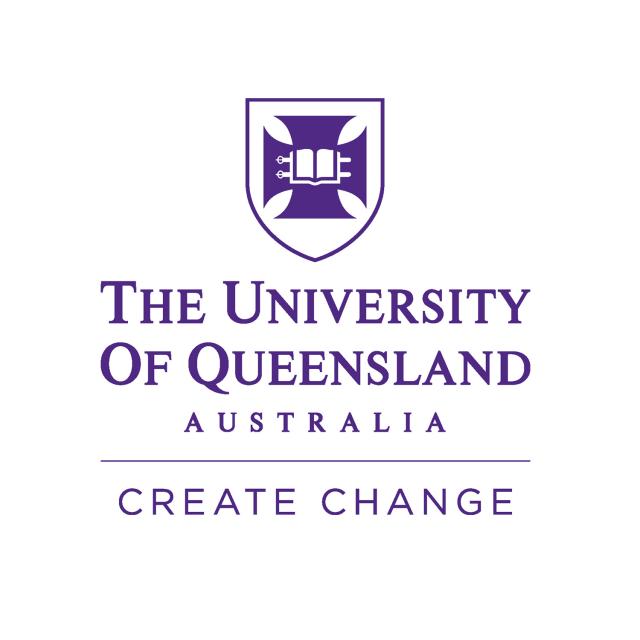
The Institute for Social Science Research (ISSR) undertakes solution-focused research to address new and emerging challenges facing Australian society and is an international leader in advanced interdisciplinary and evidence-based social science research. ISSR operates within The University of Queensland.

The Melbourne Institute is Australia’s pre-eminent economic and social policy research institution. It undertakes high quality, independent and impartial applied research, and contributes to the development of public policy in Australia.
Integrated Research Infrastructure for Social Science (IRISS) received investment (https://doi.org/10.47486/PL108) from the Australian Research Data Commons (ARDC). The ARDC is funded by the National Collaborative Research Infrastructure Strategy (NCRIS).
